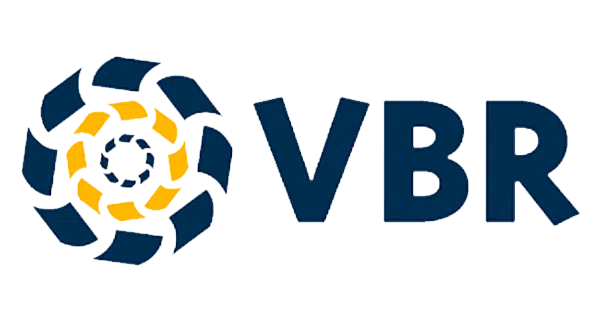Capital projects are complex, involving acquisition, building, and supporting large amounts of plant and machinery. As they are often one-off, you may ignore some cost elements such as customs duties, resulting in high unnecessary costs.
What Our Clients Say About Us



Komatsu UK Ltd
“Barbourne Brook has provided customs advice on many occasions, always demonstrating deep knowledge of the subject coupled with innovative ideas to help the business mitigate its duty liabilities.”
Stuart Reid, Finance Director
Ensinger Group Ltd
“Barbourne Brook delivered customs advice which we found insightful and very educational. I would not hesitate to recommend Barbourne Brook to other companies.”
James Cole, Finance Director
VBR Turbine Partners B.V.
“Barbourne Brook support our UK and EU business in a very professional and diligent manner, and was available a a moment’s notice to give advice and run with whatever was thrown at them, many times under extreme pressure and deadlines.”
John Fletcher, General Manager
By planning ahead of time and utilising our services at Barbourne Brook, you can avoid HMRC and tariff charges leading to major savings on capital as well as simplifying the capital project process.
Customs planning involves modelling the customs duty costs under the options open to the business, making the suitable elections to minimise duty costs, and ensuring planning will pass scrutiny by the customs authorities. Failure to do so can lead to compliance issues which may result in additional HMRC charges being incurred.
Capital Projects Customs Planning
Customs is an audit-based tax, which means imports remain open for at least three years ensuring that they need to be carried out correctly in order to not cause issues within the capital projects further down the line. The customs authorities inspect less than 1% of goods at the time of import. Any errors can lead to:
- Collection of underpaid customs duties
- Penalties up to the value of any underpaid customs duties
- Delays at port or seizure of goods
- Loss of any customs duty relief on the imported goods
- Reputational damage
Customs planning on capital projects focusses on the core elements that determine your duty cost and HMRC charge, namely:
- Tariff classification
- Origin and the use of Free Trade Agreements
- Customs valuation
- Use of special procedures or reliefs
Case Studies
In the case study below we will elaborate on how one of our clients has utilised our customs duty services in order to lessen the impact of HMRC and Tariff charges during their capital projects.
ACME implements a new Chemical Processing Plant, which includes ten different parts or sub-assemblies from all over the world. It contracts with the project management company (PMCO) to manage the acquisition and import of the plant on behalf of ACME, build the plant, and continue supporting it in the future.
PMCO engages a Freight Forwarding company to import the plant on its behalf. The Freight Forwarder asks PMCO for instructions, including the tariff classification and value of each item of plant importer. PMCO asks the plant suppliers for tariff codes for each part of the plant to declare to customs at the time of import.
| # | Landed Value | Landed Value | Duty Rate | Duty Cost |
| 1 | Aluminium Tubing | £5m | 6% | £300,000 |
| 2 | Transmission Equipment | £10m | 4% | £400,000 |
| 3 | Valves | £8m | 2% | £160,000 |
| 4 | IT Equipment | £3m | 0% | £0 |
| 5 | Gas Turbine | £12m | 3% | £400,000 |
| £38m | £1,260,000 |
The effective weighted rate of duty on the imported plant in the above example is 3.32%.
Using customs options and elections such as Split Consignment Relief or Inward Processing Tariff Inversion would enable you to treat the imports of the plant as the finished plant itself. In this example, the plant attracted a duty rate of 1.5%, giving rise to a cost of £646,000.
The total saving during the capital project in this example is £614,000.
In the above example, if the IT costs were £60m rather than £3m, it would be better to declare the individual parts of the plant separately.
| # | Landed Value | Landed Value | Duty Rate | Duty Cost |
| 1 | Aluminium Tubing | £5m | 6% | £300,000 |
| 2 | Transmission Equipment | £10m | 4% | £400,000 |
| 3 | Valves | £8m | 2% | £160,000 |
| 4 | IT Equipment | £60m | 0% | £0 |
| 5 | Gas Turbine | £12m | 3% | £400,000 |
| £95m | £1,260,000 |
The duty costs using the election to use the tariff rate of the finished machine in this instance would be £95m at 1.5%, so £1,425,000
The total saving from choosing the classify the items individually would be £165,000
Additional Savings on Capital Projects through Customs Planning
In some instances, capital projects used in tandem with other forms of customs planning could further reduce customs duty costs through:
- Stripping out qualifying spend from the customs value (e.g., post-import assembly costs)
- Additional reliefs in cases where you move the plant to the UK from existing overseas operations
- Use of free trade agreements for qualifying movements
We have simplified the case study considerably. Getting correct and accurate tariff codes for the plant is challenging but crucial for regulatory compliance and cost modelling. The importer’s responsibility is to determine tariff codes, and suppliers often provide best guesses based on customs tariffs in the source country. By adhering to this, you guarantee yourself a more streamlined process throughout all of the capital projects you are carrying out.
To find out more about our plethora of customs planning solutions and how they can be used within the capital projects process, please view our customs planning page or get in contact with our speciliast team.
Our Approach To Customs Planning
We work with clients to find potential cost savings within their capital projects and customs planning processes and while also attaining specific authorisations and agreements to apply any planning and monitor transactions to ensure you make the necessary claims. This turn-key approach provides greater certainty of realising the savings, minimises compliance risk, and speeds up delivery.
Barbourne Brook provide tailor-made customs solutions for your business in order to ensure a functional and streamlined process.

Customs Planning Next Step

If you are currently partway through, or have recently completed a capital project, then our team can advise you on how to improve the process. Contact our team below to arrange a free initial consultation to understand better how customs planning can deliver cost savings for your business.
Customs planning on capital projects is just one of over 200 tried and tested planning ideas we have successfully implemented for our clients. Find out how we can help you improve the functionality and save you charges on capital projects.
Contact Us
How can we help?
We are on-hand to help with all of your customs need. Provide us with some details on your circumstances and one of our friendly experts will be in touch to provide support and advice.


